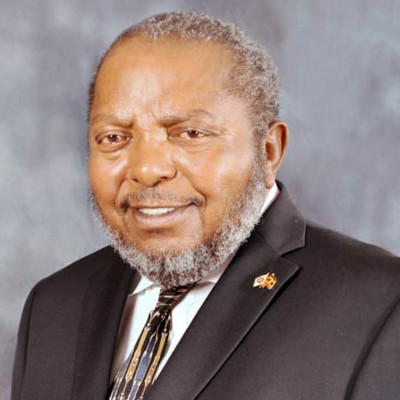Allidina Visram
Business ManAllidina Visram
Position: Business Man
Number of Views: 7,511 Views
Country: Uganda
Category: Economist
Place of Birth: Kera, Kutch, India
Date of Birth: Jan
1 1851
Education
Bio Description
Born in Kera, Kutch, India in 1851, Allidina Visram migrated to Zanzibar in a dhow at a tender age of 12 years. On arrival at the coast, he was employed as a shop assistant to Sewa Haji Paroo, a fellow Indian. But Visram was not contented with being employed, so he decided to venture out on his own. He started organising Arab trade caravans coming into the interior from the coast in search of goods.
Having organised trade caravans for two years, Visram ventured into dealing in cloves, wax, and honey from the interior, exchanging them with cloth, salt, grains. He later specialised in ivory trade, traversing as far as the Belgian Cong, now DR Congo. Visram became so famous that he was nicknamed the ‘king of ivory’. While trading in ivory, he secured a contract to provide packed food to the Europeans game hunters looking for ivory and other game trophies. According to the book The Rise and Fall of Philanthropy in East Africa by Robert Gregory, Visram made a windfall when the Uganda railway project was started.
“He was the sole supplier of food to the Indian workers on the railway line and he opened many stores along the line. He won the trust of their British engineers that they gave him the contract to pay their Indian workers and at the same time providing funds to the British constructors in Kenya,” the book says.
Coming to Uganda
Visram established himself in Uganda as early as 1901 and by 1904 he had branched into agriculture. Within a few years, he owned seven large plantations of sugarcane and rubber with experimental plots of fruits, flowers, tea and cotton. He employed more than 3,000 workers on his projects.
It was in 1910 that he opened his first ginnery and exported the ginned cotton to India. He made sure his cotton exporting business went well. He owned a number of sailing crafts which transported the cotton from Entebbe to Kisumu where he had a transportation hub, before it was put on rail to Mombasa.
As his business empire in Uganda grew, Visram brought in many workers of the Isimalia faith and among the first people he brought was Rashid Khamis in 1905. Khamis became his deputy manage and also brought in more Islamia Indians to work first as employees and later as agents. Visram, according to the Gregory’s book, was not all about amassing wealth for himself, he was a philanthropist and ecumenical in his giving.
“He contributed substantial funds to the construction of Namirembe Cathedral, the Red Cross and the Church Mission Hospital in Kampala [Mengo Hospital],” the book says. Visram was credited by the Commissioner of Uganda, Sir Fredrick Jackson, for his role in developing plantation agriculture, something indigenous Ugandans were not ready to embrace at the time. Commissioner Fredrick wrote: “I am doing all I can to induce the people to cultivate sugarcane and simsim (sesame). An Indian trader named Allidina Visram is already prepared to buy as much as the natives like to cultivate and that should assist in the circulation of the rupee if the people can only be induced to cultivate.”Later as governor, he described Allidina as “a charming old gentleman, respected by everyone in the country, high and low, White or Black”.
Dr Cyril Ehrlich wrote in The Uganda Economy, 1903-1945: “Perhaps the most important individual in the early history in East Africa, Allidina Visram was responsible for laying the firm foundation not only of trade in Uganda but of such industries as cotton, sugar, rubber, tea and various other agricultural products as well as of shipping across Lake Victoria.” He goes on to describe him as the uncrowned king of Uganda, extended his activities on the mainland from Mombasa to the lower reaches of the Nile.
In 1903, Visram established his shop in Kampala which became the centre of trade in the developing capital of Kampala, on what came to be known as Allidina Visram Street. It was where he built the first duka in Kampala and he was referred to as the grandfather of Dukawalah’s in Uganda. The street was in 1972 renamed Bokassa Street by Idi Amin in honour of the visiting Jean Badel Bokassa, the emperor of Central African Republic. On that occasion, Amin said: “Bokassa is my friend. That is why I have named Allidina Visram Street after him. Why have a British-Asian in the middle of Kampala?” But the name was later changed by Obote in memory of the slain head of the Anglican Church, Archbishop Janani Luwum.
Writing in the Uganda Journal of 1954, W. E. Hoyle, one of the few British to settle in Kampala by 1902, says Visram was the lifeline of many European residents in Buganda when it came to supplies and cash whenever it was needed.
“To Europeans the most important store was that of Allidina Visram, existence almost depended upon his store, for his firm not only supplied the necessities of life but in the absence of any bank it provided ready money,” Hoyle wrote.


